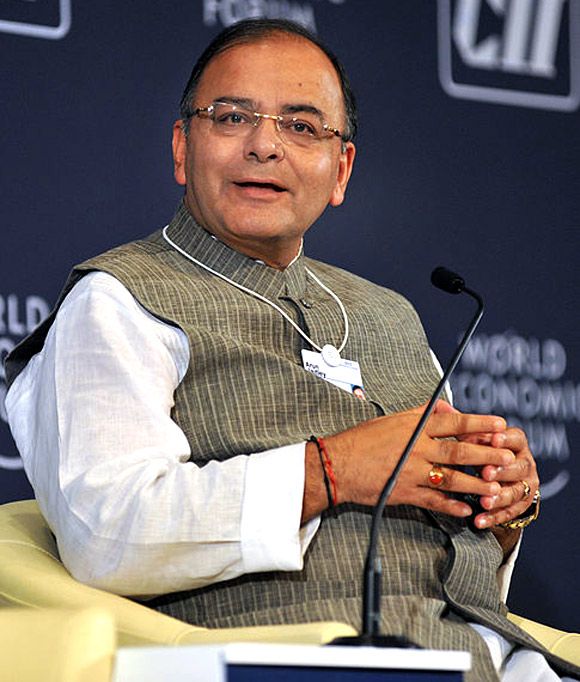 The ruling party has indicated willingness to discuss opposition-sponsored motions on ‘intolerance’; Jaitley has also shown willingness to accommodate concerns on GST
The ruling party has indicated willingness to discuss opposition-sponsored motions on ‘intolerance’; Jaitley has also shown willingness to accommodate concerns on GST
The coming winter session of Parliament would see an opposition bloc, emboldened after the ruling Bharatiya Janata Party’s defeat in Bihar, more combative and united in raising the issue of “intolerance”.
The loss, however, has also strengthened the voice of reformers within the government. The session, starting November 26, could see a government more open to discussing contentious issues. And, more purposeful in pushing its reform agenda by reaching out to the principal opposition party, the Congress, to ensure passage of the goods and services tax constitutional amendment.
Recently, Finance Minister Arun Jaitley went to the residence of Congress leader and opposition head in the Rajya Sabha, Ghulam Nabi Azad, inviting him to a family wedding. The two also discussed the coming session, sources said.
Earlier in the day, the finance minister said at the UAE-India Economic Forum 2015 in Dubai that the government would make all efforts to persuade the opposition to support the GST bill. Indications are that the government might be willing to meet the Congress concerns halfway, perhaps also softening its earlier stance on the issue of a one per cent manufacturing tax.
The session, with barely 20 working days, will also give hints on the shape of politics for the next round of assembly elections to five states, due by mid-2016, and those to Uttar Pradesh and Punjab by early 2017. How parties within the opposition camp seek to strike tactical alliances inside Parliament could indicate future alignments on the electoral battlefield.
Uttar Pradesh Chief Minister Akhilesh Yadav on Monday seemed to put an end to the possibility of any alliance between his Samajwadi Party and the Bahujan Samaj Party, against the BJP. He said the SP-BSP equation in UP was different from that of the Janata Dal and Rashtriya Janata Dal in Bihar. “We will also have to keep an eye on whether BSP and BJP are seeking a political alliance,” he said.
In Punjab, ex-Congress state chief Amarinder Singh said the party was open to an alliance with like-minded parties against the ruling Akali Dal-BJP alliance for the 2017 polls in the state.
The BJP, meanwhile, looked for a strategy to address the move by Bengal rivals, the ruling Trinamool Congress and rival Communist Party of India-Marxist having moved notices in the Rajya Sabha for discussions on the issues of ‘unity in diversity’ and ‘intolerance’.
“We will raise the issue of how the Trinamool government has shown intolerance by not allowing Durga Puja celebrations in Nalhati or a member of legislative assembly of that party shooting dead three Dalits in Nadia in May,” said Siddhartha Nath Singh, the BJP’s Bengal co-in charge. He said the Trinamool and the CPI-M being on the same side in Parliament will buttress the BJP’s campaign in Bengal that “a vote for CPI-M is a vote for Trinamool”. The state goes to polls by April 2016, as do Kerala, Tamil Nadu, Puducherry and Assam.
The Congress and the Janata Dal have also moved notices for a debate on the issue of ‘intolerance’. According to sources, Jaitley and Parliamentary Affairs Minister M Venkaiah Naidu are likely to call a meeting of party leaders next week, and convey the government’s willingness to discuss “all issues”. But, the Congress plans on being unrelenting. One of its seniors in the Lok Sabha said, “The best way to deal with this government is to be aggressive and not let it work.”
The Congress is clear that they will support the GST bill only after the changes they have demanded are incorporated. Any hope of a productive winter session has to be viewed in the context of the widening communication gap between Prime Minister Narendra Modi and Congress President Sonia Gandhi and Vice President Rahul Gandhi.
On Monday, BJP Rajya Sabha member Subramanian Swamy queered the pitch further by alleging Rahul Gandhi had held a British passport in the past. The Congress said the allegations were “entirely false”. Not a good omen if the government plans to roll out the GST regime by mid-2016.










